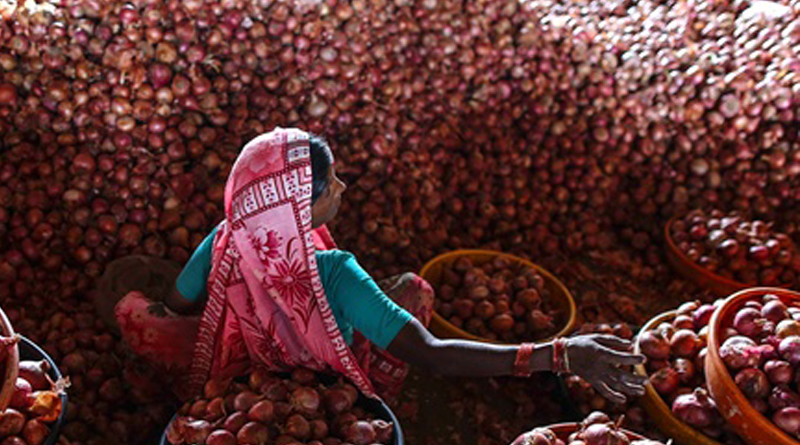Jailing traders is no remedy for unrealistic minimum support prices
Month after month, as India approaches the next general election, BJP is ditching its claim to be the party of economic freedom and reform, and rushing into zany populist schemes that used to be the hallmark of Congress. It remains a mystery why it believes that the failed Congress approach will somehow work for BJP.
The latest sign of de-liberalisation is the new law in BJP-ruled Maharashtra imposing a jail sentence of one year plus fine of ₹50,000 on any trader who buys farm produce in mandis at below the minimum support price (MSP). This ill-conceived mix of price control and compulsion makes a mockery of BJP’s claims to economic liberalism.
This Ain’t No Money Plant
The party is going to make an ass of itself, since Maharashtra’s zany decree is incapable of implementation. The resulting fiasco will alienate both farmers and traders, losing votes instead of gaining them.
Traders in Maharashtra have gone on strike to protest against the new law. Chief minister Devendra Fadnavis thinks they can be intimidated into buying high and selling at a loss. Such ignorance would be understandable in a communist party, but is inexplicable in a party built on the votes of traders.
Fadnavis announced his intention to enact such a law three months ago. So, the Prime Minister’s Office had plenty of time to discourage the idea. Instead, it has given it the green signal. Narendra Modi, no less than Fadnavis, will be tarnished by the coming fiasco.
The starting point of the fiasco has been Modi’s populist decision to announce an MSP for most crops with a margin of 50% above purchased inputs and imputed labour costs. This ignores demand, supply and international prices. It is a nonsensical approach to any economic activity whatsoever, let alone farming. It replaces economic sense with pure populism, treating farmers as welfare recipients rather than economic actors.
The notion that farmers can be made prosperous by price decrees is fatuous. If that were possible, governments everywhere would have done it long ago. In fact, attempts at price support have failed across the world, and are being replaced by cash transfers directly to farmers. India needs to go the same way.
MSP populism can empty the treasury in a twinkling, depriving governments of the ability to fund other worthwhile schemes. The cost of such populism was curbed earlier by procuring only a few crops in a few states. By seeking to extend this to all states and to almost all crops, Modi threatens to create a massive hole in the finances of central and state governments, jeopardising India’s macroeconomic stability.
Indian agriculture today is characterised by widespread surpluses, putting pressure on prices. Global prices have fallen from their dizzy heights of 2008-13. The answer cannot be guaranteed high MSPs that encourage ever-greater surpluses for which there is no demand in India or abroad.
For two years, state governments, including Maharashtra, have sought to prop up falling prices of dal. This has been a costly failure for both the states and traders. One trader in Latur says, “The Maharashtra government purchased huge quantities of tur dal at ₹5,050 a quintal in 2016, and is struggling to dispose of this. It is selling at ₹3,700 a quintal today. I bought tur at ₹4,500 a quintal that time, and no one wants to buy from me as Maharashtra government is selling it at a cheaper rate.”
Declining Pulse Rate
Satish Kumar Vyas, director of the Achalpur Agricultural Produce Market Committee (APMC) in Amravati, says many farmers who sold dal to government agencies in 2017-18 are still to receive their MSP payments. “When the government itself is unable to the pay MSP, how does it expect us to do so? We can pay higher prices to farmers only when we are able to sell at least at those rates.”
Others traders say they will now buy tur and other items from other states and bring that into Maharashtra. What they cannot, and will not, do is to buy local produce at high MSPs bearing no relation to consumer demand.
The attempted coercion of traders will fail. Mandi prices in Maharashtra will crash further. Farmers will curse Fadnavis and Modi for raising their hopes and then dashing them. This risks creating a massive loss of seats for BJP in the coming general election. That will be a just reward for abandoning economic liberalism for the most ill-conceived populism.
Madhya Pradesh has tried a different approach. Since it cannot afford to procure all crops at MSP, it promises to compensate farmers for market deals below MSP, paying this directly into the accounts of farmers registered at mandis. Even this approach is likely to empty government coffers quickly. It encourages excess production.
The best policy by far is Telangana’s approach of giving direct grants to farmers of ₹4,000 per acre. This avoids the perverse incentive of high MSP in encouraging excess production. Telangana’s grant is very high and cannot be copied across states. But Modi would do well to accept the principle of cash payments and phase out the high-MSP approach.


